Idea by
Alejandro Vargas M + David Mesa A
entropía_arquitectura adaptativa
https://www.instagram.com/entropia.aa/
Call for ideas 2021
Floods safety card
Floods safety card
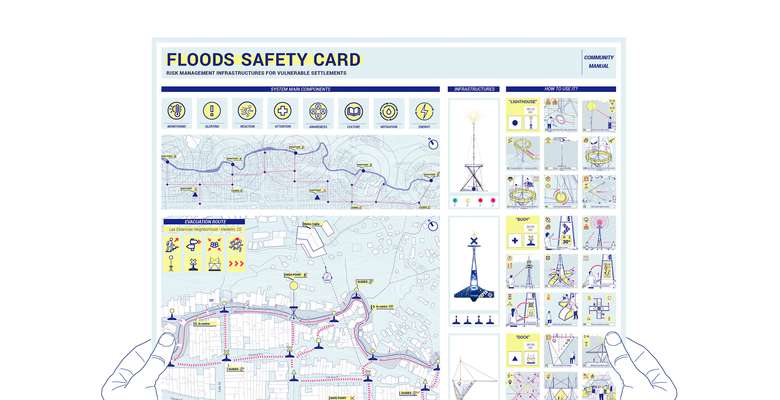
- Systemic changes
Climate change is our current reality, its effects are increasingly visible and catastrophic: torrential rains, sea-level rise, and overflowing rivers are some of the effects caused by a global scale imbalance. Water is our most precious resource yet we pollute it day by day, which is why every year millions of people located near water sources in informal settlements are severely affected by this phenomenon.
Most informal settlements become permanent and given the urgency of these events we propose a system for floods risk management, composed of small infrastructures focused on awareness, monitoring, early warning, and emergency attention of water-related risks in vulnerable communities worldwide, responding to a local problem with a globally replicable intervention model. These low-cost infrastructures save lives and create global awareness about climate change as the main mitigation action, allowing us to make a safe transition towards a water-resilient urban development model.
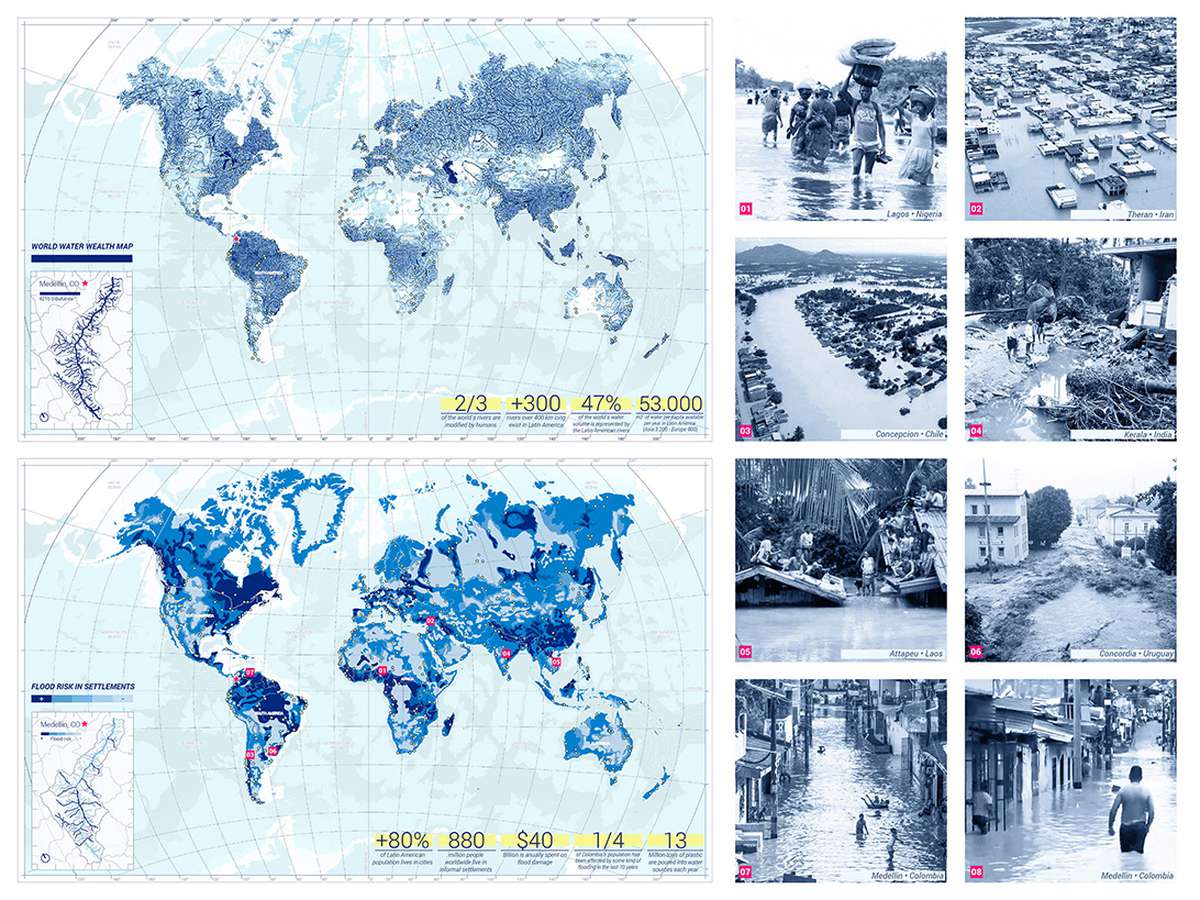
In the last 20 years, 12,000 extreme weather events have been recorded worldwide, killing 495,000 people and leaving over 40 billion dollars in losses. Latin America has 26% of the world's water resources. This results in two different scenarios: on one hand, it makes us widely diverse but on the other, it makes us more prone to suffer natural disasters such as floods and landslides. It is imperative to start an awareness process that allows us to adapt as a species to the new natural conditions
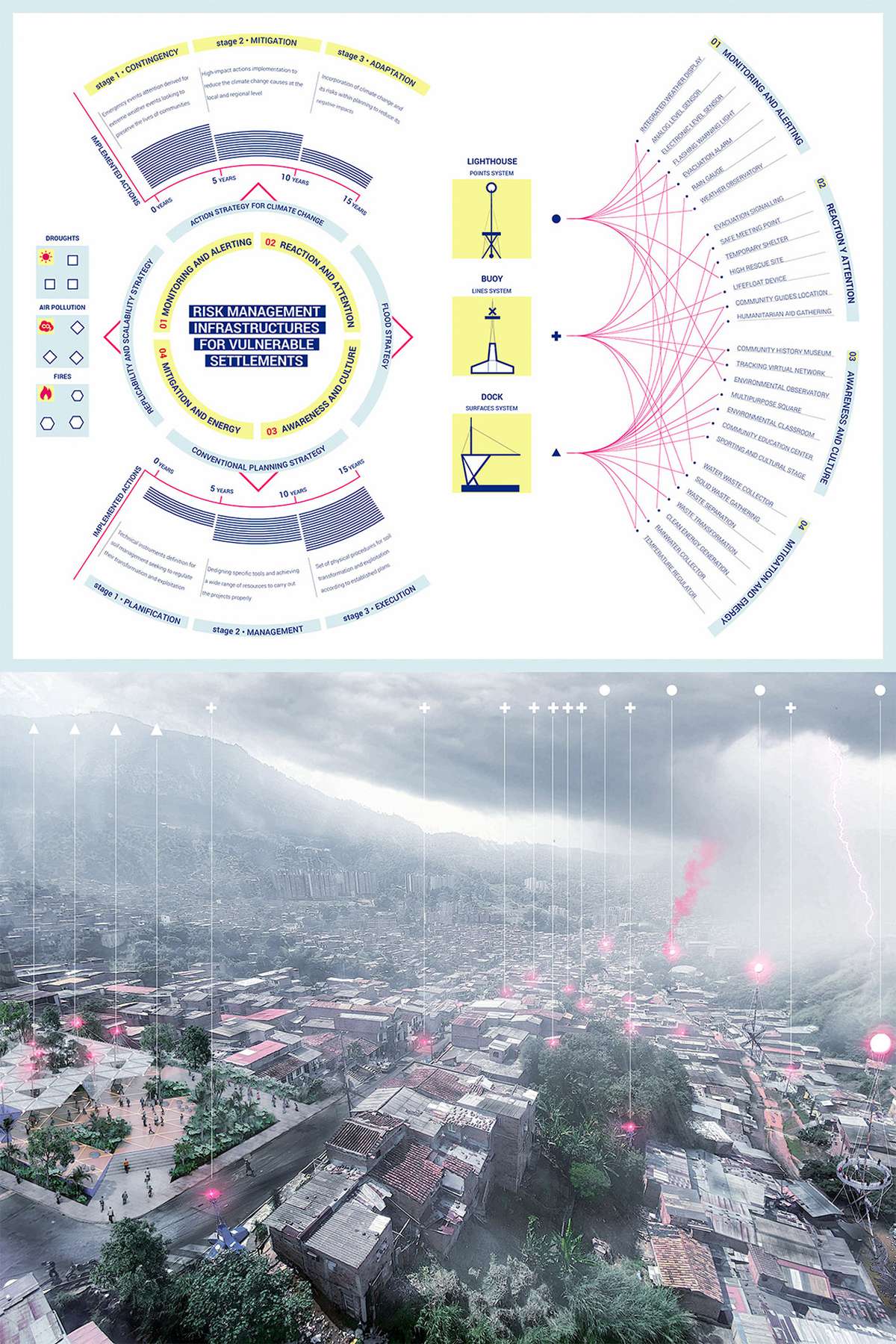
Given the difficulty that exists in developing cities to manage resources and execute large urban projects, we propose a replicable system of locally scaled but globally impact infrastructures, which involve concrete mitigation and emergency prevention actions; reducing from 2 to 10 times the costs of late disaster assistance.
These infrastructures are intended to manage, collect, and transform solid waste as a contribution to community management, with aim of restoring water ecosystems.
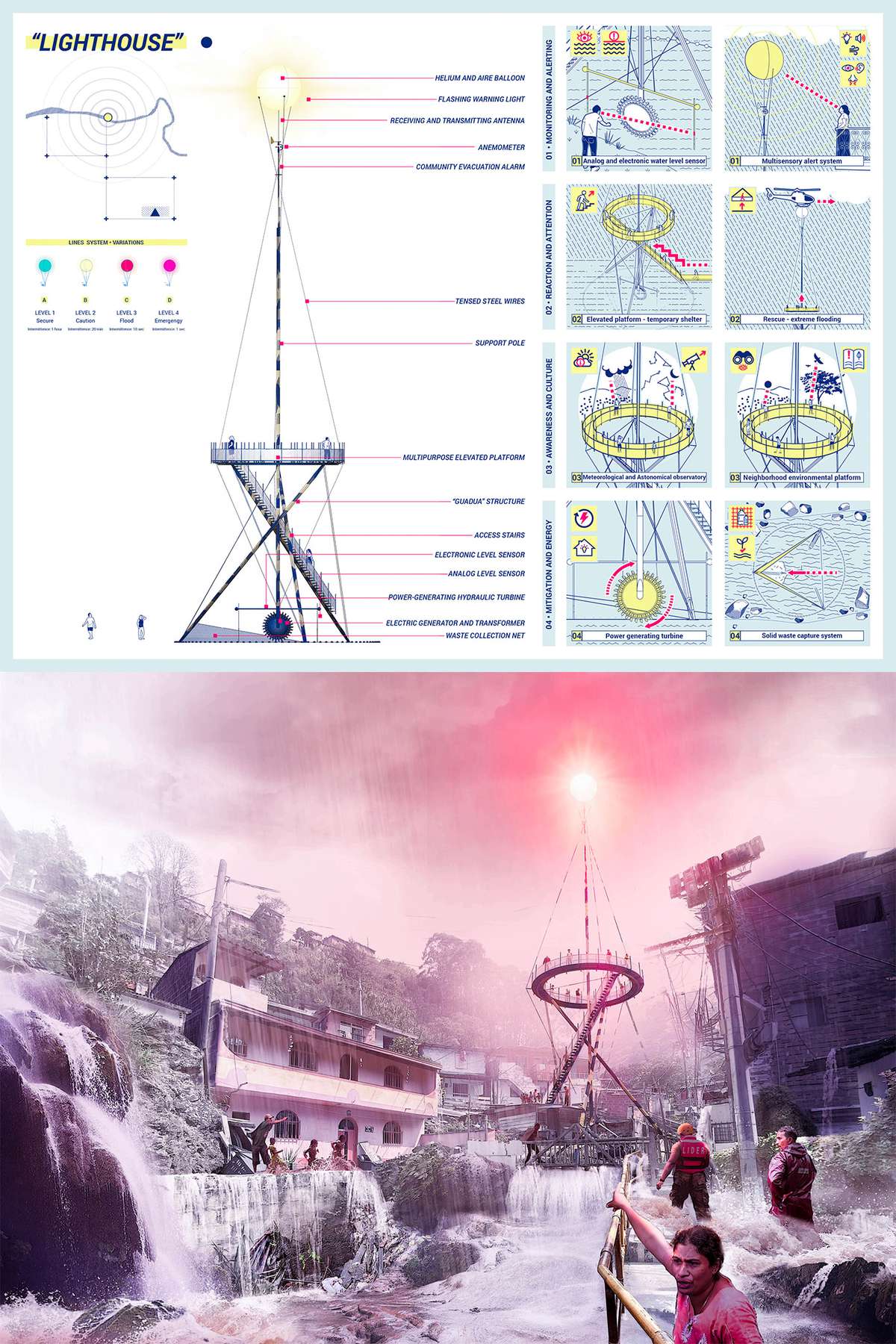
"Lighthouse" monitoring and alerting when extreme weather events in informal settlements occur.
These infrastructures will instruct communities to adapt progressively to extreme events, integrating social, architectural, aesthetic, and urban components associated with these settlements seeking to strengthen their cultural identity.
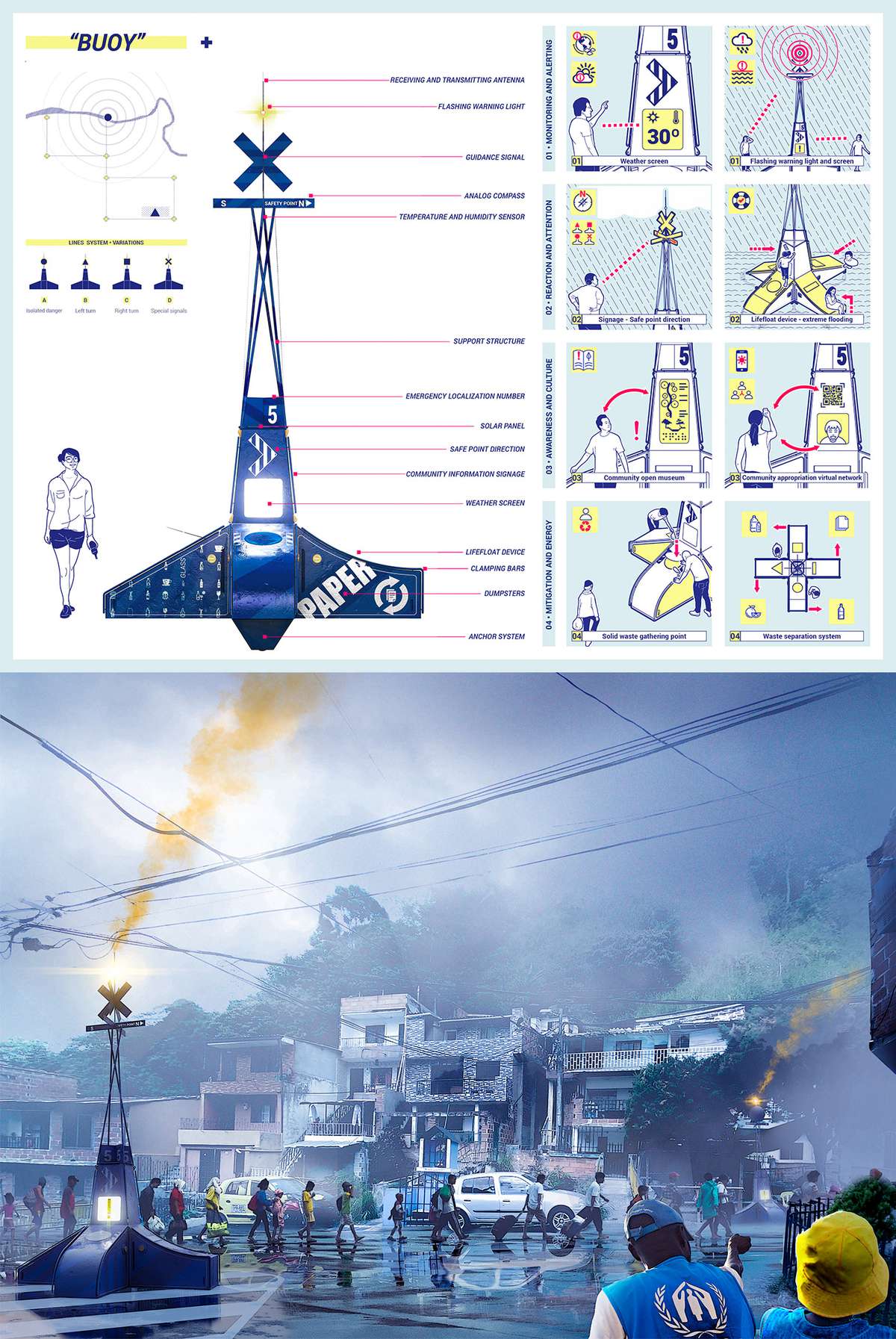
"Buoys" guiding the evacuation of communities when extreme weather events occur.
Description, components, variations, and related activities.
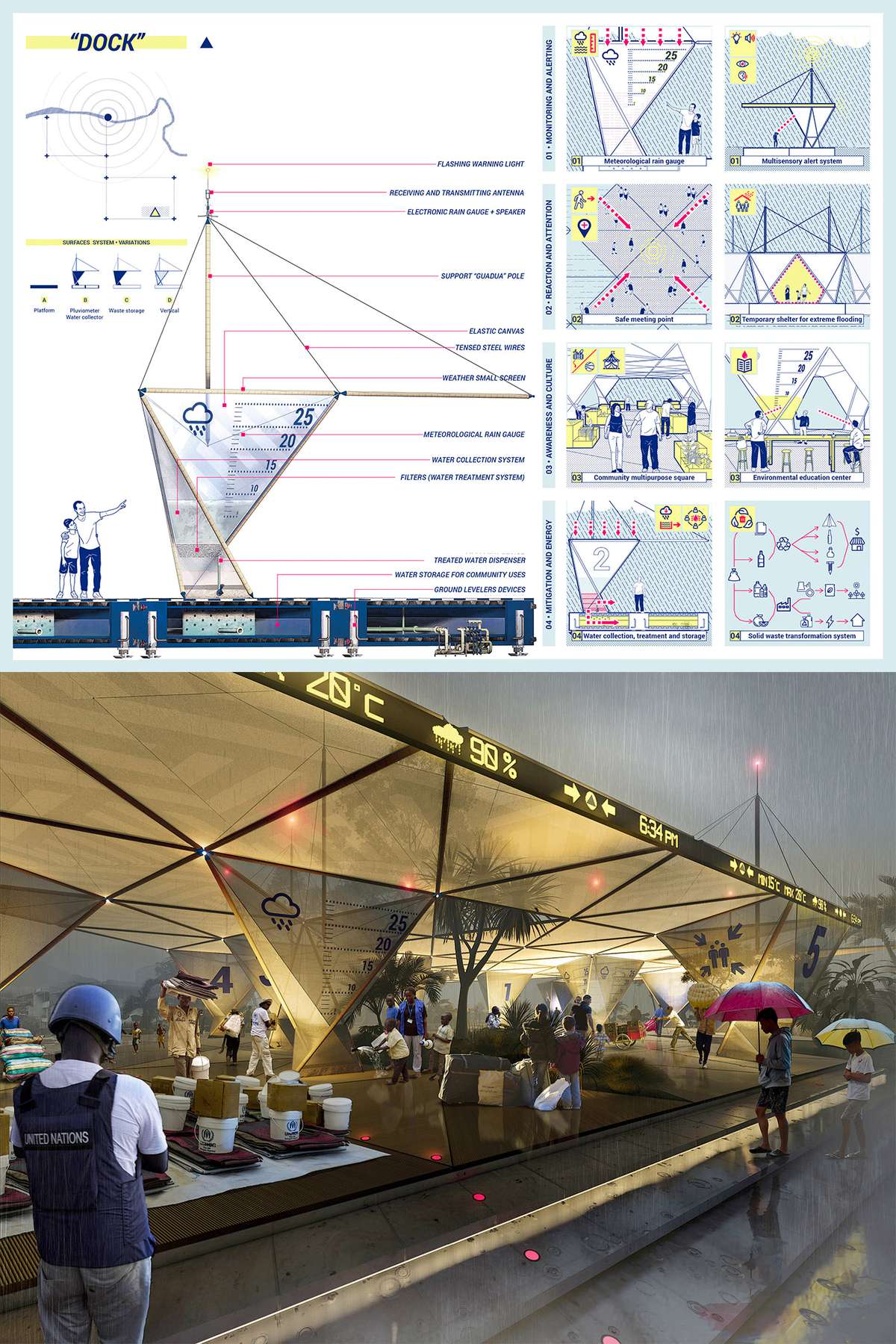
"Dock" as a community shelter when extreme weather events in informal settlements occur.
This new infrastructural network for risk self-management in vulnerable settlements will seek to save lives while mitigating risks, decontaminating water channels, and creating global awareness about climate change and its adverse effects.
Floods safety card
Floods safety card

- Systemic changes
Climate change is our current reality, its effects are increasingly visible and catastrophic: torrential rains, sea-level rise, and overflowing rivers are some of the effects caused by a global scale imbalance. Water is our most precious resource yet we pollute it day by day, which is why every year millions of people located near water sources in informal settlements are severely affected by this phenomenon.
Most informal settlements become permanent and given the urgency of these events we propose a system for floods risk management, composed of small infrastructures focused on awareness, monitoring, early warning, and emergency attention of water-related risks in vulnerable communities worldwide, responding to a local problem with a globally replicable intervention model. These low-cost infrastructures save lives and create global awareness about climate change as the main mitigation action, allowing us to make a safe transition towards a water-resilient urban development model.
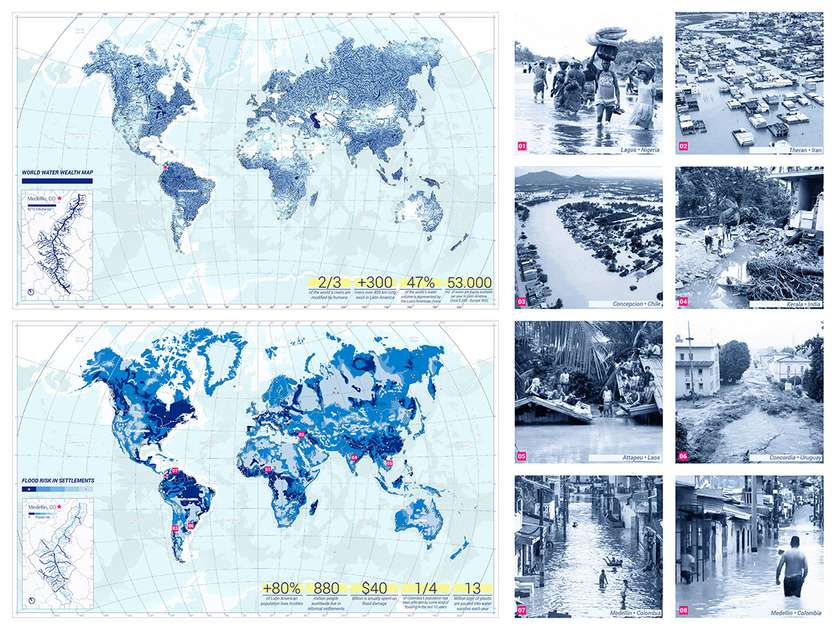
In the last 20 years, 12,000 extreme weather events have been recorded worldwide, killing 495,000 people and leaving over 40 billion dollars in losses. Latin America has 26% of the world's water resources. This results in two different scenarios: on one hand, it makes us widely diverse but on the other, it makes us more prone to suffer natural disasters such as floods and landslides. It is imperative to start an awareness process that allows us to adapt as a species to the new natural conditions
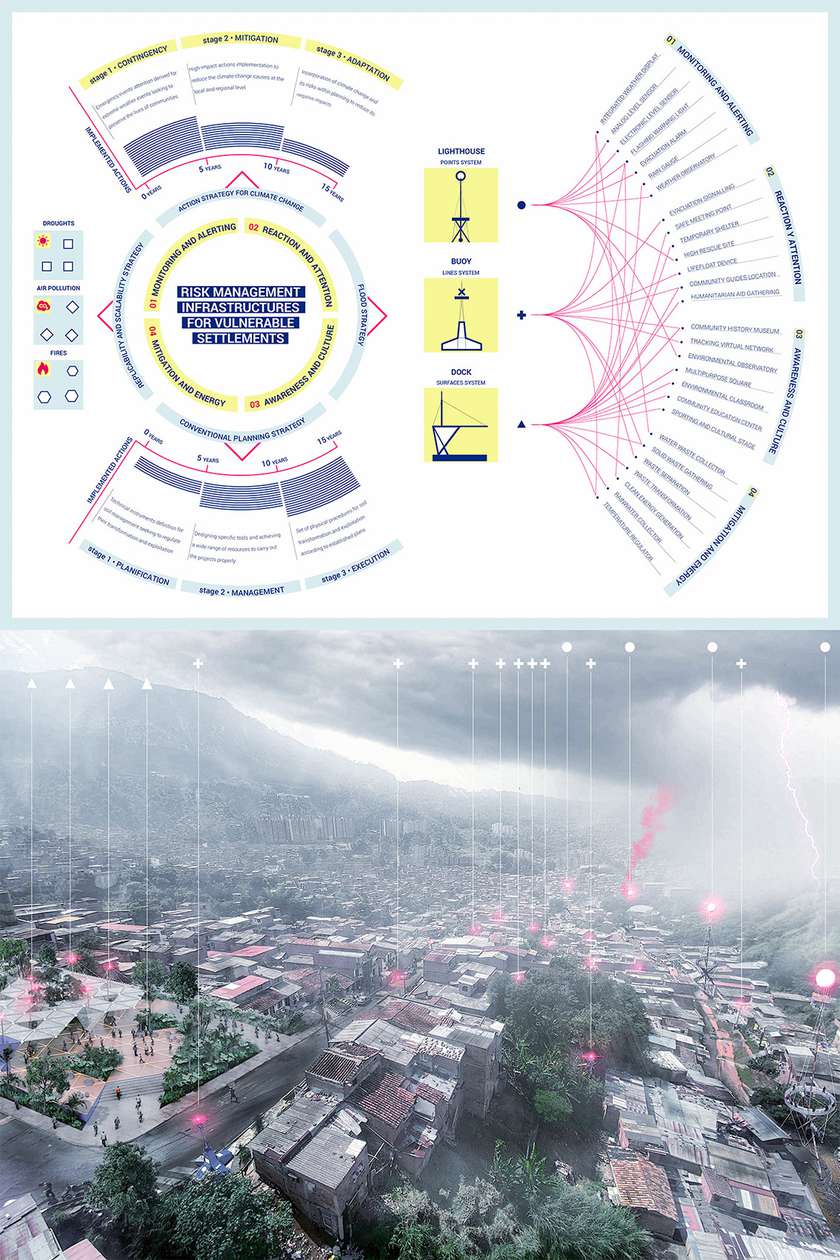
Given the difficulty that exists in developing cities to manage resources and execute large urban projects, we propose a replicable system of locally scaled but globally impact infrastructures, which involve concrete mitigation and emergency prevention actions; reducing from 2 to 10 times the costs of late disaster assistance.
These infrastructures are intended to manage, collect, and transform solid waste as a contribution to community management, with aim of restoring water ecosystems.
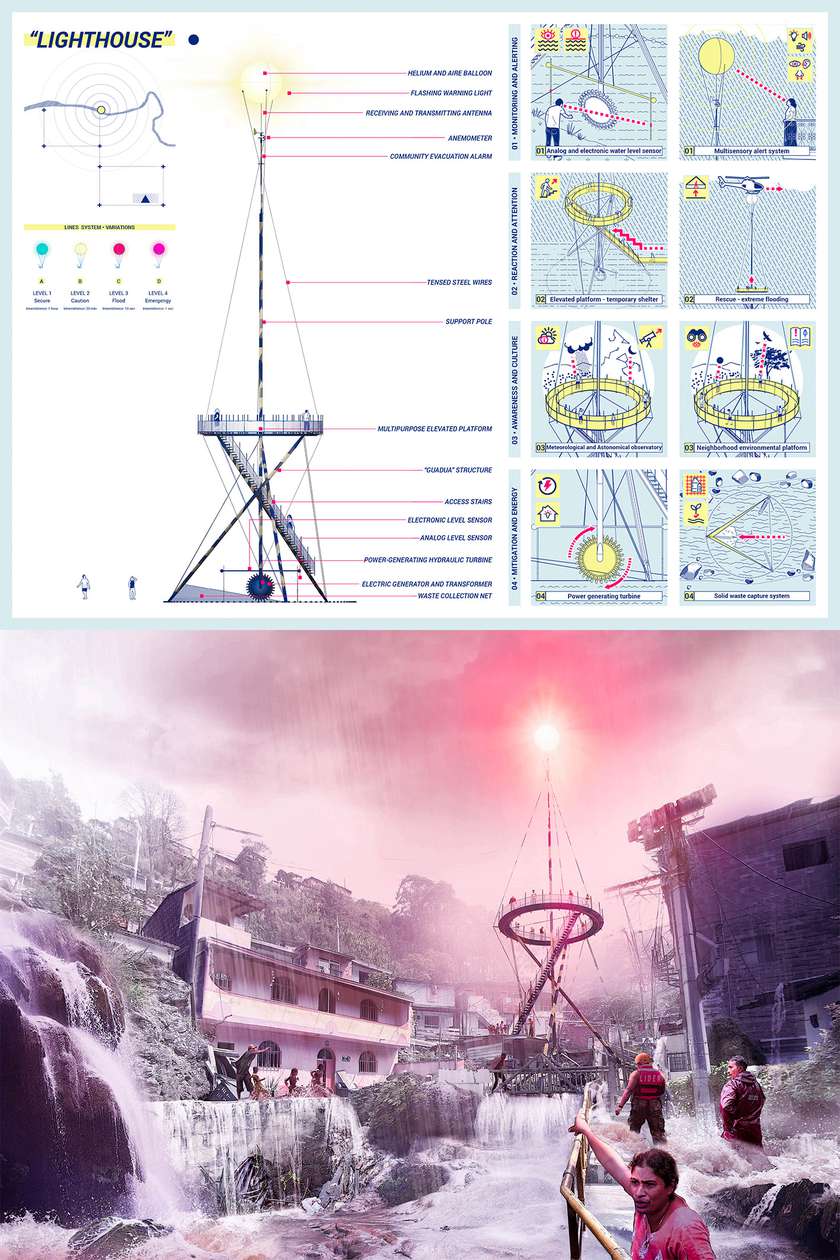
"Lighthouse" monitoring and alerting when extreme weather events in informal settlements occur.
These infrastructures will instruct communities to adapt progressively to extreme events, integrating social, architectural, aesthetic, and urban components associated with these settlements seeking to strengthen their cultural identity.
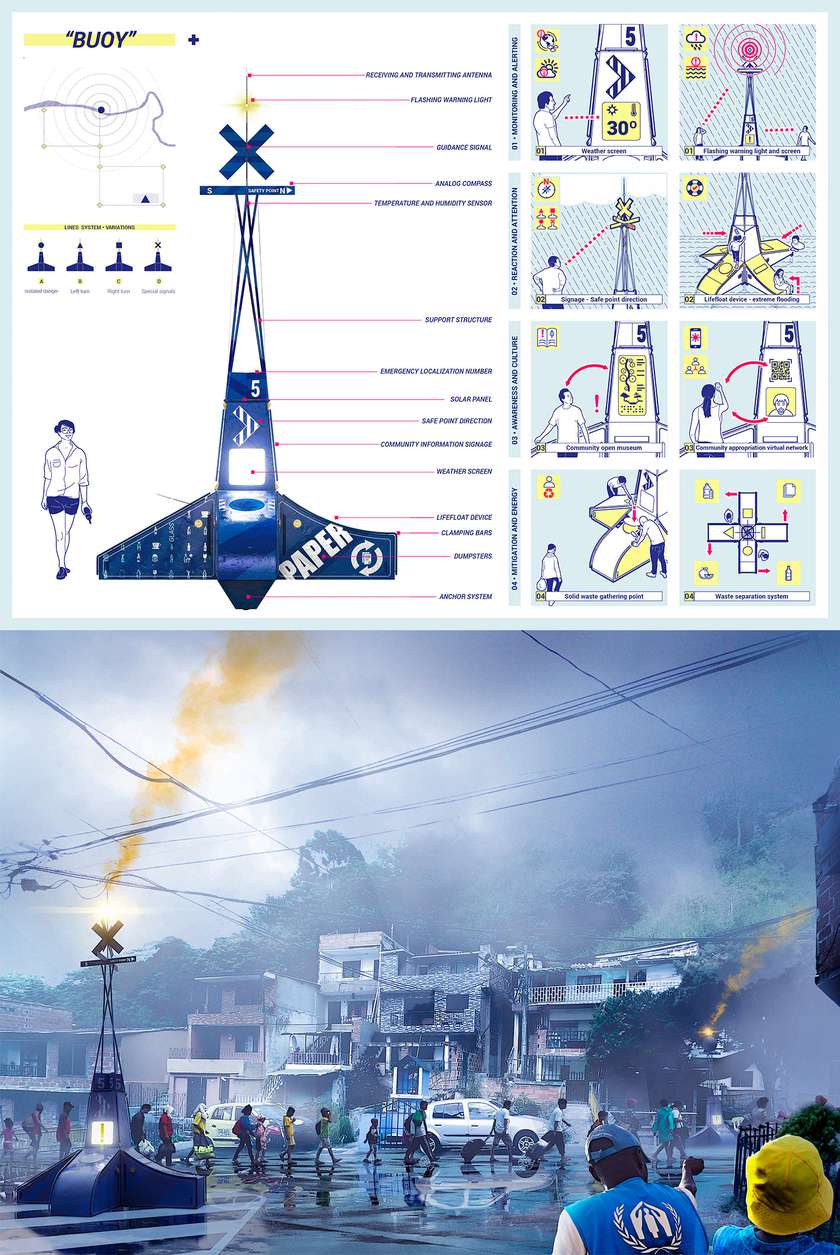
"Buoys" guiding the evacuation of communities when extreme weather events occur.
Description, components, variations, and related activities.
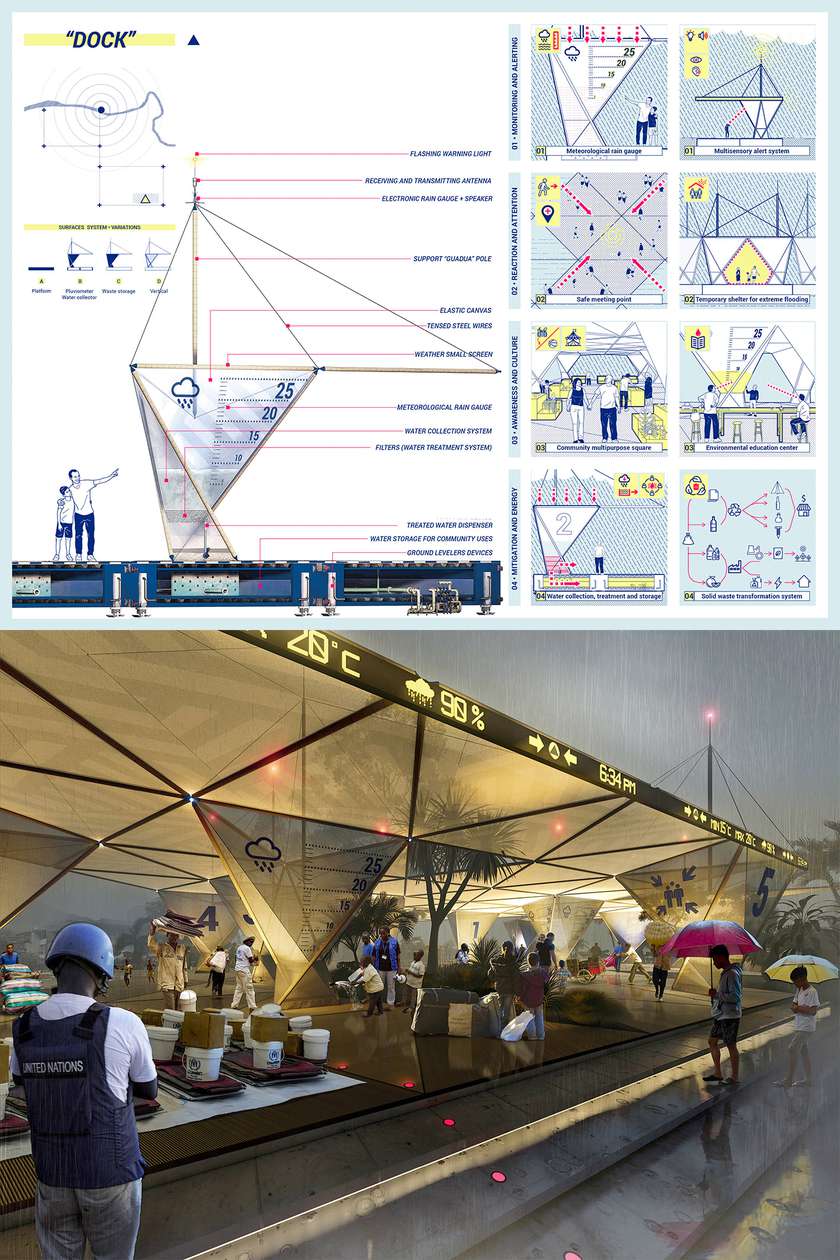
"Dock" as a community shelter when extreme weather events in informal settlements occur.
This new infrastructural network for risk self-management in vulnerable settlements will seek to save lives while mitigating risks, decontaminating water channels, and creating global awareness about climate change and its adverse effects.